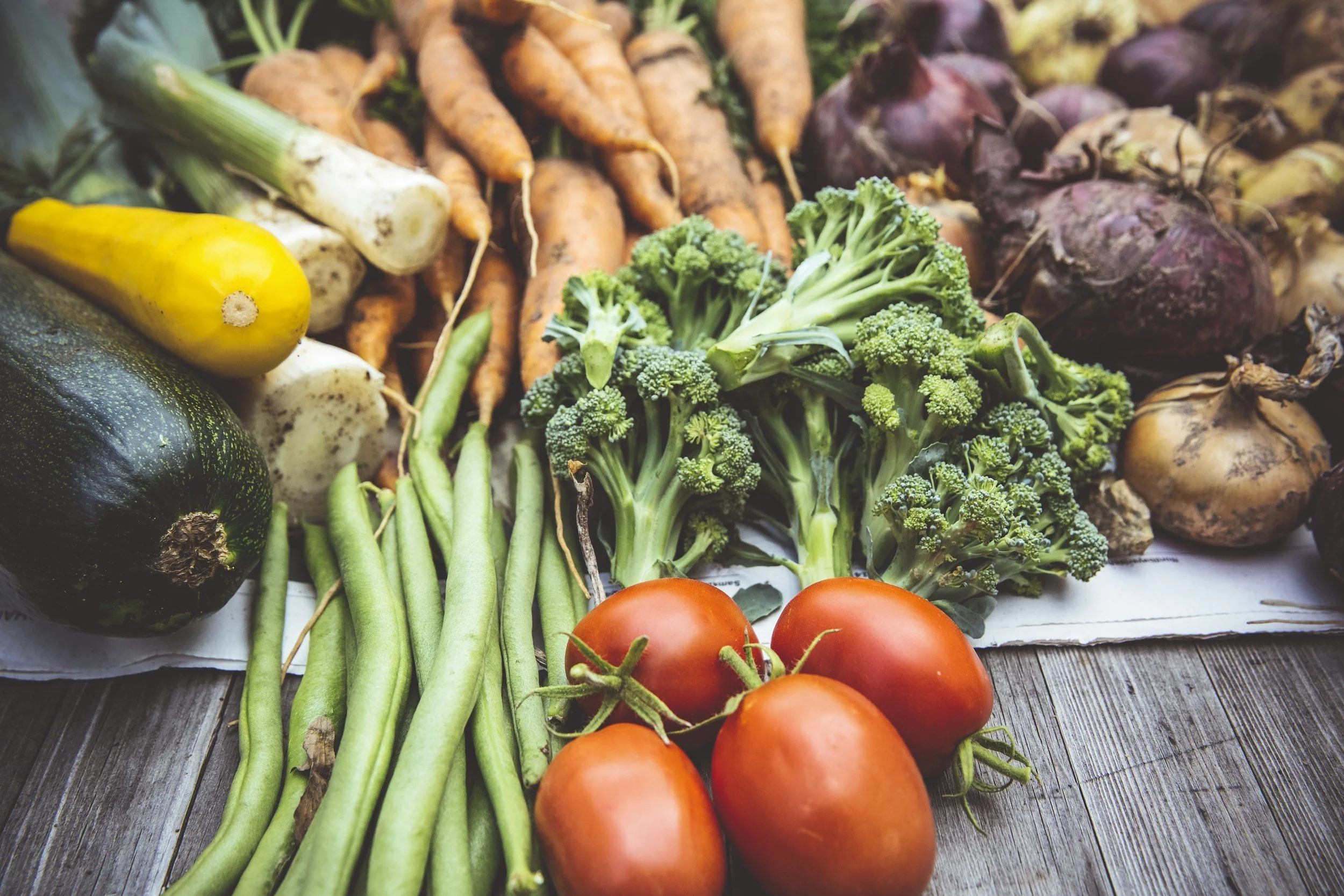Harvest Health: Food to Soothe a Busy Mind
If you live in Kerry, you don’t need me to tell you that Summer can be both a blessing and a whirlwind. The long days, the colour in the hedgerows the swell of visitors — they fill our pockets, our tables and our hearts. But for many who work in hospitality or tourism, August also brings a particular kind of exhaustion. The constant busyness leaves the nervous system humming, digestion often compromised and mood a little frayed. It’s no coincidence. Science now confirms what Traditional Chinese Medicine (TCM) has long understood — the gut and the mind are deeply connected. Modern research shows that when our digestion is under strain, our mood, resilience and sleep can suffer. That’s why Late Summer, with its abundance of naturally sweet, grounding foods, offers the perfect opportunity to nourish both body and mind, helping us find our centre again before the quieter months of Autumn.
In TCM, there is a “fifth season” between the yang peak of Summer and the yin retreat of Autumn. Late Summer is connected to the Earth element and to the spleen and stomach — the centre of our digestive and energy systems. The Earth element governs digestion, not just of food but of thoughts and experiences. Worry, rumination and overthinking are signs of an out-of-balance Earth element — something most of us recognise after weeks or months of constant “go mode.” When the spleen and stomach are weakened, you may feel tired after meals, crave sugar, or notice bloating, loose stools or a dip in mood.
Fibre-rich vegetables and live-culture foods play a central role in restoring that balance. They feed beneficial gut bacteria, which in turn produce short-chain fatty acids that reduce inflammation and support mental health. This isn’t just a notion from holistic health — the science is constantly backing up what Nature has been telling us for donkey’s years. In early 2025, Harvard Medical School identified a gut bacterium, Morganella morganii, that produces an inflammation-triggering molecule linked to major depressive disorder, offering a clear biochemical explanation for how gut imbalances can influence mood. Around the same time, Stanford researchers mapped out how the gut communicates directly with the brain via both the vagus nerve and microbe-derived chemicals, showing that disruptions can affect mood, sleep, motivation and even play a role in anxiety and long COVID brain fog. Every forkful of fibre-rich vegetables or fermented goodness — whether it’s sauerkraut, fermented beetroot or a simple home-grown apple — is a small, tangible step toward a steadier mind and a calmer nervous system.
When the nervous system has been running hot, we need food that brings it gently back into balance, not more stimulation. Late Summer’s harvest is perfectly designed for this. The natural sweetness of root vegetables, ripe fruits and golden grains is grounding and satisfying, strengthening the spleen in TCM and calming restless thoughts. From a modern nutrition perspective, the slow-release carbohydrates in oats, barley, sweet potatoes and corn help stabilise blood sugar, preventing the energy crashes that can worsen anxiety and low mood. Magnesium-rich foods such as beet greens, spinach, pumpkin seeds and blackberries support muscle relaxation, reduce the perception of stress and prepare the body for quality sleep. The season also offers polyphenol-rich fruits — blackberries, plums and late raspberries — shown to protect the brain from oxidative stress and support cognitive function.
Even in a busy September, these foods can be worked into daily life without fuss. A pot of harvest vegetable soup, with onions, carrots, courgettes and a handful of oats simmered until silky, offers slow-release energy and a gentle sweetness that soothes the body. A warm blackberry and apple compote, topped with seeds and oats, brings fibre and hedgerow polyphenols to breakfast or dessert. Quick fritters made from grated courgette, fresh sweetcorn and herbs make the most of seasonal abundance and pair beautifully with a crisp salad and late season tomatoes. These dishes offer more than just fuel — they’re a way of telling the body that it is safe to slow down, to digest and to reset after the rush of Summer.
Nature doesn’t switch from full bloom to bare branches overnight — it moves through this bridge season, letting the soil rest and the crops ripen fully before harvest. We can take a cue from that rhythm. Even if September is still busy, weaving in moments of grounding — through food, fresh air and mindful eating — helps our bodies and minds recover from the high tide of Summer. In TCM, this is called “nourishing the centre”; in modern science, it’s about supporting the gut–brain connection and reducing the wear and tear of chronic stress. Whatever the language, the message is the same: the foods of Late Summer are more than ingredients, they are medicine. A bowl of soup, a handful of blackberries, a quiet moment with a cup of lemon balm tea — these small acts steady the mind, soothe the body and prepare us to step into Autumn with more resilience and a little more ease.

